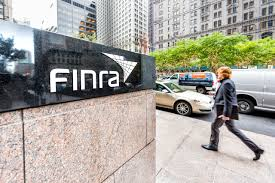
Understanding FINRA’s Oversight Role
FINRA attorney is a self-regulatory organization empowered by Congress to enforce securities laws, regulate broker-dealers, and promote fair practices within the investment industry. Its responsibilities range from licensing and monitoring brokerage firms to investigating misconduct and providing forums for dispute resolution. Because its authority is extensive and its rules are complex, individuals and firms facing FINRA actions often turn to specialized attorneys who understand how to navigate these challenges effectively.
A FINRA lawyer not only interprets the governing rules but also defends clients before arbitration panels, negotiates settlements, and prepares responses to regulatory inquiries. Without professional guidance, investors may struggle to recover financial losses, and brokers risk penalties that could damage or even end their careers.
Why You Need a FINRA Attorney
Investment disputes frequently involve claims of unauthorized trading, unsuitable recommendations, misrepresentation, or failure to disclose risks. On the other side, brokers and firms often face customer complaints or regulatory scrutiny that can result in fines, suspensions, or permanent industry bans.
For investors, a FINRA arbitration attorney works to recover losses by filing claims, presenting evidence, and advocating in arbitration hearings. For financial professionals, a securities defense lawyer provides strategies to counter allegations, protect licenses, and safeguard reputations. In both scenarios, the guidance of a FINRA attorney ensures that cases are presented thoroughly and effectively.
The FINRA Arbitration Process
Arbitration is the primary method FINRA uses to resolve disputes between investors and financial institutions. Unlike litigation in court, arbitration is generally faster and less expensive, but its decisions are legally binding with very limited opportunities for appeal. This makes the outcome particularly significant for all parties involved.
A FINRA litigation attorney handles every stage of arbitration, from preparing statements of claim or defense to presenting expert testimony before arbitrators. For investors, arbitration may be the only viable way to seek compensation for financial losses. For brokers and firms, arbitration can be a means of defending against damaging allegations and mitigating liability. Having a lawyer experienced in the nuances of FINRA arbitration dramatically improves the likelihood of a fair result.
Mediation and Alternative Dispute Resolution
In addition to arbitration, FINRA offers mediation as an alternative process for resolving disputes. Mediation is voluntary and non-binding, involving a neutral mediator who facilitates dialogue between the parties. While it can often lead to faster and more flexible settlements, mediation still requires careful preparation. A FINRA dispute attorney helps clients negotiate from a position of strength, ensuring that settlement terms align with their financial and professional interests.
Common Cases Handled by FINRA Attorneys
The range of cases that come under FINRA’s jurisdiction is broad. Investors often bring claims involving unsuitable investments, excessive trading (also known as churning), breach of fiduciary duty, or outright fraud. Brokers and firms, on the other hand, frequently require defense against these allegations, as well as assistance with expungement requests to remove unfounded complaints from regulatory records.
A seasoned securities arbitration lawyer evaluates the merits of each case, crafts strategies tailored to the circumstances, and ensures that the client’s side of the story is effectively communicated. Their role extends beyond dispute resolution, offering guidance on compliance practices that help firms prevent future regulatory issues.
Defense Against Regulatory Investigations
FINRA possesses significant disciplinary authority, including the power to fine individuals and firms, suspend licenses, and issue permanent industry bans. For brokers or firms under investigation, the potential consequences can be career-defining.
A FINRA defense attorney plays a critical role in these high-stakes situations. They respond to inquiries, represent clients during regulatory interviews, and negotiate with FINRA enforcement staff to reduce penalties. With experienced counsel, financial professionals have a much better chance of protecting their reputations and continuing their careers in the securities industry.
Advantages of Hiring a FINRA Attorney
The benefits of engaging a FINRA attorney go beyond legal expertise. These attorneys bring industry-specific knowledge, strategic thinking, and practical experience that enable them to anticipate challenges and craft effective responses. For investors, this representation increases the likelihood of financial recovery, while for brokers and firms, it provides vital protection against sanctions and reputational harm.
Equally important is the peace of mind that comes with professional representation. Clients facing arbitration or investigations can focus on their personal or business responsibilities, knowing that their attorney is managing the complexities of the process with diligence and skill.
Choosing the Right FINRA Attorney
Not all lawyers are equipped to handle FINRA disputes. When selecting representation, it is important to consider experience, specialization in securities law, and a proven track record in arbitration and regulatory defense. A reliable attorney should demonstrate clear communication, transparency in their approach, and a commitment to achieving results that align with client objectives. The right choice can significantly influence the outcome of a dispute or investigation.
Conclusion
In the highly regulated world of securities, disputes and regulatory actions carry consequences that can affect financial security, professional reputations, and future opportunities. FINRA provides a structured process for addressing these issues, but without proper representation, individuals and firms risk serious setbacks. A FINRA attorney offers the legal knowledge, advocacy, and strategic insight necessary to protect rights and achieve favorable outcomes in arbitration, mediation, and disciplinary proceedings. Whether recovering losses as an investor or defending against allegations as a broker, the role of a FINRA attorney is indispensable in ensuring fairness, accountability, and justice within the financial marketplace.